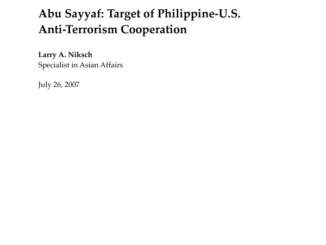
In today’s environment, millions of people rely on computers to do business, homework, and to dispatch information to others. It is therefore very important to secure the information that we have on our computers. If you are using a computer exclusively, it is your duty to do all you can to reduce computer risks, prevent data loss, and to reduce computer abuse. In the business world, data protection is paramount because a company’s data is fast becoming one of the most value asset that any company owns. Keeping your electronic data secure from hackers is therefore most important.
A computer security risk is any action, deliberate or otherwise that could cause lost of information, damage to critical software, or data corruption. Computer security risks also extend to program incompatibilities, or computer hardware obsolescence. Many instances of computer loss or computer damage are planned and are therefore not accidental. Any intentional breach in computer security is said to be a computer crime which is slightly different from a cyber crime. A cyber crime is really an illegal act perpetrated through the Internet, whereas a computer crime will be any illegal behaviour which involves the use of a computer.
There are several distinct groups of people involved in computer crimes and understanding who they are is important. The most popular form of criminal computer acts is broadly known as hacking. In this case, a person uses a network or the Internet to gain illegal access to a computer. Hackers too, have gained much notoriety over the last 10 years because they are seen as representing people who are in rebellion against the systems of society. Some of the more recent names assigned to people posing computer security risks are cracker, cyber-terrorist, cyber-extortionist, unethical employee, script kiddie and corporate spies.
The term hacker was actually used in reference to ordinary people with the ability to break into computer systems legally. However, with the wide-spread use of the Internet, a hacker has now become known for illegal actions. A hacker is defined as someone who accesses a computer or computer network unlawfully. They often claim that they do this to find leaks in the security of a network. Recent developments in computer programming have spawned the term Ethical Hacking. This is an IT-related term for posing as a thief to catch loopholes in your own computer systems. The term cracker has never been associated with something positive this refers to someone how intentionally access a computer or computer network for unlawful or unethical purposes.
A cyber-terrorist is someone who uses a computer network or the internet to destroy computers, websites, or systems for political reasons. The intention here is to cause harm to important systems such as a banking system or a military computer network in order to score political points. Unlike a regular terrorist attack, cyber-terrorism require highly skilled individuals, thousands of dollars to implement, and many months of planning. The term cyber extortionist is used to refer to someone who uses emails or other electronic communication media as an offensive weapon. As an example of this, a cyber-terrorist can access a web-based database, confiscate it, and erase other available copies. They can then demand a ransom for the release of this information.
They could carry out their illegal act by doing other things such as sending a company a very threatening email. The information they may have could be trade secrets, company data, or even personal information about one of the senior officers of the company. By demanding a ransom for not releasing such information through the Internet, they are participating in cyber-terrorism against the company or persons.
Many computer security risks are related directly to disgruntled employees. It is for this reason why many of the top companies in the USA have adopted sections of the Sarbanes-Oxley Act of 2002. Executives of each public company must take personal responsibility for the security of a company’s data in addition to truthfulness in accounting practice. All stake-holders must be assured that the data which a company has about a person such as credit cards must be secure at all times. As the Internet grows, only time will tell what other measures will become necessary to reduce computer risk, thwart cyber-terrorism, and mitigate against the impact of hackers and crackers all over the globe.
Proudly WWW.PONIREVO.COM



